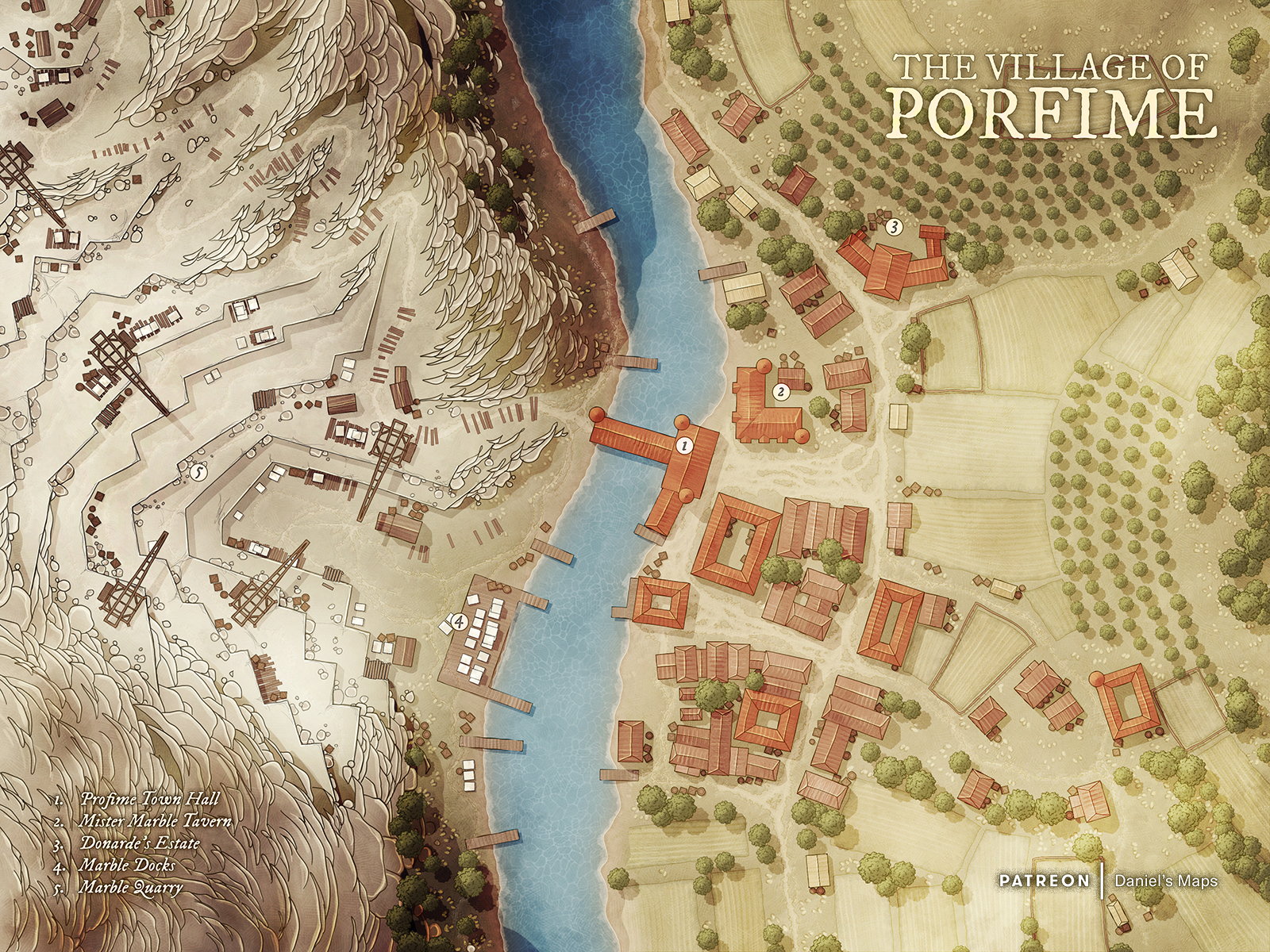Porfime
Porfime sits on the eastern bank of the River Edel, nestled among rolling hills, fields, and vineyards. At first glance, it appears a sleepy village, the kind travelers pass through with a nod and a yawn. But behind its gentle appearance lies a community carved, quite literally, from stone.
Across the river, the land rises into a line of steep cliffs where the Porfime Quarry cleaves into the hills in layered terraces of pale marble, gleaming in the light. Wooden cranes groan over the stone like patient beasts of burden, and narrow stairways snake their way between the levels. Workers' lodgings and tool sheds cling to the cliffside.
Connecting both banks stands Porfime Town Hall, the village’s pride and centerpiece. More bridge than building, the hall spans the river like a lordly colonnade, with arches below and council chambers above. On the eastern side, it opens into the village square, a modest but lively space where farmers sell their grapes, quarrymen come to grumble, and gossip travels faster than the current.
Here, tucked beside the square, stands the Mister Marble Tavern, a name that began as a joke but now graces the sign in bold copper letters. If Porfime has a heart, this is it: warm wine, old songs, and the eternal bickering of vineyard hands and stonecutters over who does the real work.
Further north, just past the vineyards, lies the Donarde Estate, a handsome manor perched on a rise, overlooking the fields like a man admiring his own boots. The Donarde family has owned the land around Porfime for generations, grapes, grain, and gossip seem to grow especially well under their watchful eye. While the family itself is rarely seen in the tavern or quarry, their influence is felt in every barrel of wine and in every cart of marble that leaves the docks.
Though the eastern docks are modest, used mostly by the occasional fisher or ferry, the western docks, set against the quarry’s base, bustle with barge activity. Great blocks of marble are loaded here for transport downstream, for cities and cathedrals far grander than Porfime.
There is no mayor in Porfime. Governance falls to the Town Council, which meets monthly in the Town Hall. The council is made up of local tradesmen, vintners, quarrymasters, and elders, and if decisions take long, it is only because everyone insists on talking at once.
Porfime may lack grandeur, but it possesses something rarer: a quiet pride. In its stone, its wine, its weathered beams and hillside paths. It is not a place of heroes or high offices—but it is a place that endures, and in every carved stone block that leaves its quarry, a little piece of Porfime travels the world.





Comments